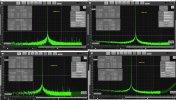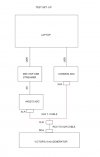My Earthworks M30 measurement mic is rated to 30 kHz, and there is a 50 kHz M50 version (I think @amirm has that one; he has all the best toys!) It is true many stage and recording mics are only specified to 20 kHz though many go well beyond that. Like speakers with tweeters that extend to 40 kHz or more, often the goal is to ensure that sounds up to or a little past 20 kHz are captured cleanly without distortion, so they have bandwidth that extends well beyond that even though the spec is only 20 kHz for most of them. I have used several mics like the Shure SM81 and some big AKG condensers (C414 family) up to about 25 kHz or so.
If this ADC is not suitable for your purposes without NIST or similar certification, then a search for a different ADC is in order.
If this ADC is not suitable for your purposes without NIST or similar certification, then a search for a different ADC is in order.


